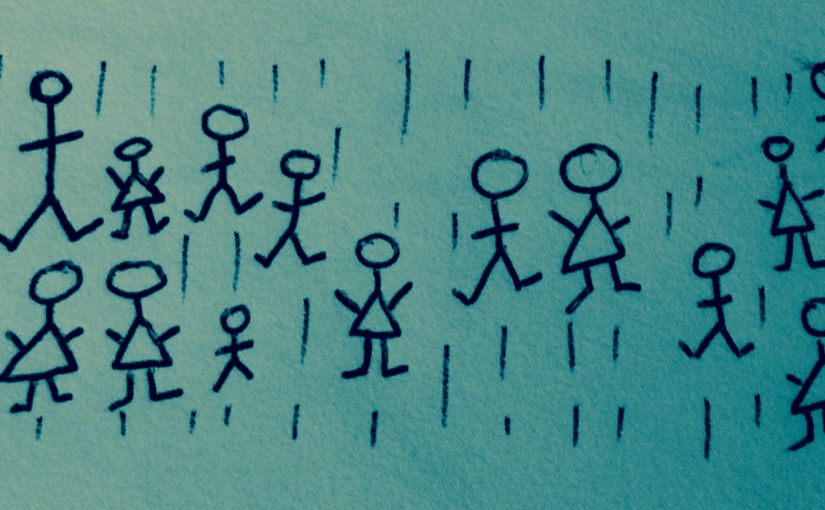An unwelcome person. There has been a lot of buzz around the world about uniting for humanity. Yet running parallel to these cries are those people we treat as unwlecome in our midst – non-human.
Maybe you have been in this position yourself? A victim of domestic violence or emotional abuse; a recipient of social security payments whose individual situation is lost amid the criteria of the system.
Or perhaps you were one of the Kurds before the beginning of the Syrian war? Loosing your citizenship, land and the right to give your child a Kurdish name.
Before we act with outrage and innocence, it happens everywhere. In the past Maori people in NZ could not vote, lost their land and were beaten for speaking Te Reo.
There is one certainty about treating a human being as a persona non grata. The results aren’t great. For the person. And for the society they live in. Now and in the future.
Unwelcome for too long – abuse and labels, fustration and anger, and suffering. And violence.
It is this aspect of humanity, ironically, ISIS or Daesh or…, take advantage of. Whether its civil war in Syria or Iraq or Mali. Or whether it is trying to re-inforce discord between peoples in Lebanon or Paris. They take advantage of the vacuum of power during unrest or use peoples existing feelings of anomosity to their own end.
While the infiltration of terrorists poses a real threat, and the temptation to protect oneself at the expense of others is natural. So much greater is the threat when we start to see others as less than human for we become and create what we despise.
Remember many didn’t welcome Jesus either.
Jesus knew His identity was best seen through God’s eyes not mans. Because He knew what was in the heart of men. Yet still He valued us so much He was willing to love us unto death.
With this came a powerful but hard message ‘forgive and love ones enemies’, refuse to treat humans as persona non grata -even the guilty.
Even until we can mourn the suicide bombers of Lebanon and Paris as human too; overtaken by the evil in our world.
God the one who loves me, give me the knowledge of the depths of your mercy so I may be able to receive it and offer it to others. Forgive me where I have been guilty of treating another as less than a person.
And at this time Father bestow on your people wisdom from above, for we do not war against flesh and blood but the powers and principalities of evil in the spiritual realm.
“3Grace to you and peace from God our Father and the Lord Jesus Christ, 4who gave Himself for our sins so that He might rescue us from this present evil age, according to the will of our God and Father, 5to whom be the glory forevermore. Amen. “(Galatians 1:3-5)

